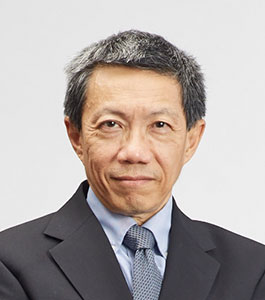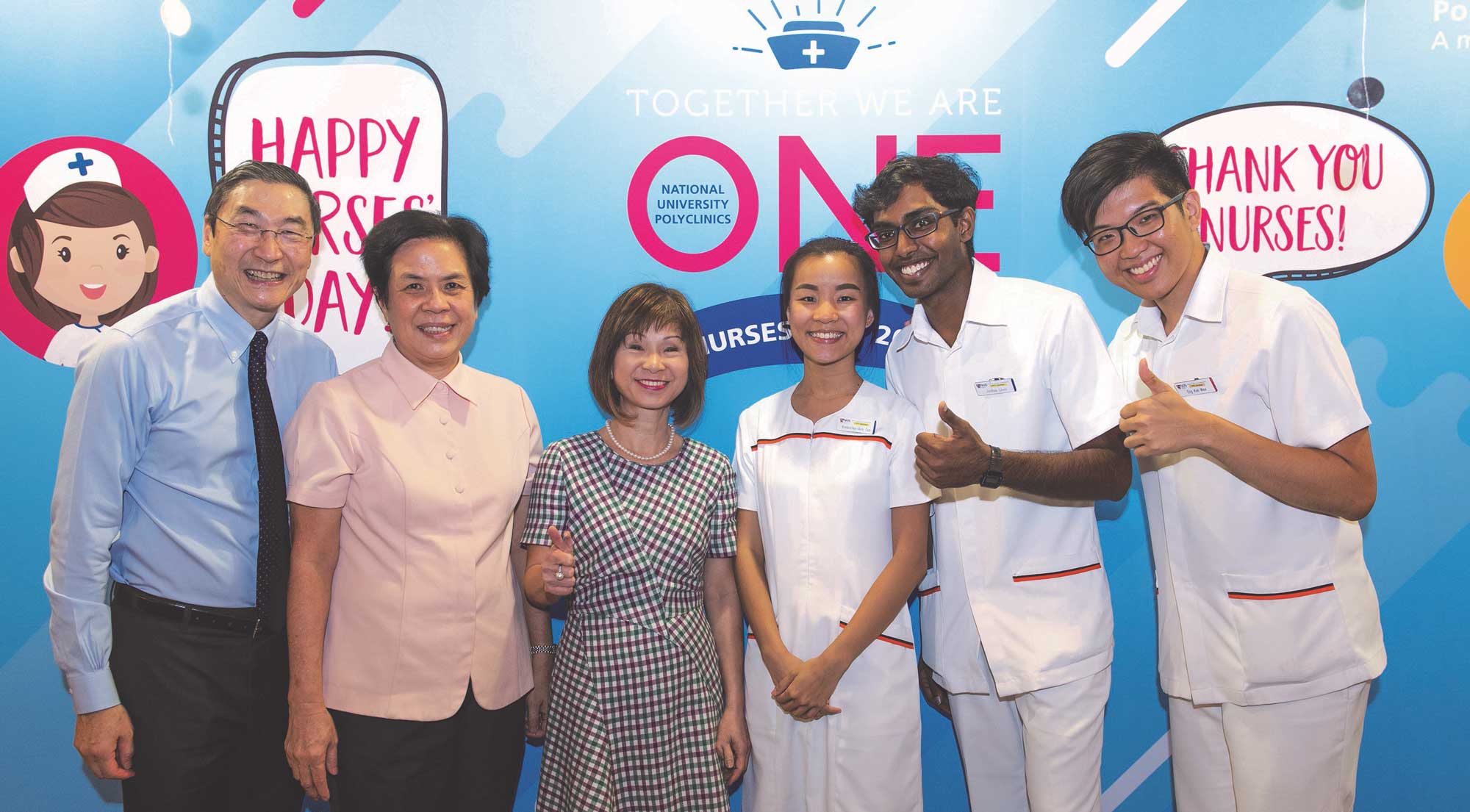Accelerating Higher Education In Nursing

When you look at primary care, and even advanced primary care, there’s no reason why a well-trained nurse with her or his Master’s degree can’t manage a patient’s hypertension, hyperlipidemia or vaccinations and screening programmes. — Professor John Eu-Li Wong, Senior Vice President (Health Innovation & Translation), NUS
Professor John Wong, Isabel Chan Professor in Medical Sciences, Senior Vice President (Health Innovation & Translation) at the National University of Singapore (NUS), and former Chief Executive of the National University Health System, played an instrumental role in advancing higher education for nurses, when he championed the setting up of a degree programme at NUS in 2003.
Then, just months after his appointment as Dean of the Yong Loo Lin School of Medicine, he began to engage key government and nursing officials on establishing a nursing degree programme for school-leavers at NUS.
He first met with then Chief Nursing Officer (CNO) Ang Beng Choo, making a pledge to champion the programme. He then had formal meetings with key Ministry of Health officials at the time—Health Minister Khaw Boon Wan, Director of Medical Services Tan Chorh Chuan and Permanent Secretary Moses Lee—to seek the government’s green light for a local Nursing school.
When the government gave its go-ahead, he approached the NUS President and Provost in 2003, Professor Shih Choon Fong and Provost Chong Chi Tat, respectively, to secure their support for a school of Nursing at NUS. One of the challenges was obtaining funding for the programme, but a late-night meeting with Prof Shih at the residence of the late Dr Lee Seng Gee, then Chairman of the Lee Foundation, cleared this hurdle.
“We met Dr Lee at his residence close to midnight as he had a function to attend,” Prof Wong recalls, “and the meeting went on till past 1 am.”
“We told him the reason we were keen to advance nursing education in Singapore was because critically-thinking baccalaureate-prepared nurses were critical to Singapore’s future. His wife, Dr Della Lee, fully understood our vision and objectives and soon after that meeting, the Lees made a donation to create a school in honour of Dr Lee’s mother, Alice Lee,” he recounts.
In 2005, the philanthropic group presented a $30 million gift to NUS to fund the setting up of a nursing school, as well as new scholarships and professorships. The donation paved the way for the team comprising staff from NUS and the CNO’s office to turn its plans into reality. Their priorities were to hire leading faculty and locate classrooms, labs and office facilities for the programme.
Prof Wong explains that starting the nursing school as a department within the medical school was a deliberate decision, but it was named a “Centre” to avert perception that it is being “dominated by the medical profession”.
An International Advisory Panel comprising nursing leaders from Australia, United Kingdom and United States was convened to provide expert advice on curriculum and faculty for the Centre.
Subsequently, the team went to Hong Kong to recruit the school’s first founding head, Professor David Arthur, who was appointed in June 2006.
In August 2006, the Alice Lee Centre for Nursing Studies officially opened its doors with 49 students and five faculty members sited at the Faculty of Engineering, due to a shortage of space in the School of Medicine.
The school moved to its present location at MD11 in February 2011. Today, the programme has taken off with an enrolment of more than 300 students. It is also ranked Asia’s leading nursing programme by the QS Rankings.
The belief that a strong nursing school would be a critical prong of Singapore’s future healthcare ecosystem motivated his vision, explains Prof Wong.
Nurses, being the largest profession in healthcare, have the best chance to be scaled up to take on roles in healthcare leadership, administration, care delivery and policy-making, compared to the smaller number of doctors and other allied health professions such as pharmacists and physiotherapists.
“I can’t understate how important the Centre is going to be in turning out real drivers and leaders of Singapore’s future healthcare,” he reiterates.
Attracting the best and brightest school-leavers to take up Nursing as a career will, however, remain an uphill challenge, as it requires young women and men to devote their lives to a “really tough” profession.
Prof Wong believes three things must happen before high-calibre school-leavers choose nursing over other healthcare disciplines such as medicine and pharmacy—and the good news is that all are being done.
“Firstly, society has to change its perception that all nurses do are bathing and cleaning patients. Secondly, the healthcare profession needs to engage nurses as partners and leaders. And lastly, career and compensation structures should be designed to enable this.”
With the evolution in nurses’ professional development, Prof Wong sees no reason why the 21st century model of a primary healthcare provider can’t include a family nurse practitioner.
“When you look at primary care, and even advanced primary care, there’s no reason why a well-trained nurse with her or his Master’s degree can’t manage a patient’s hypertension, hyperlipidemia or vaccinations and screening programmes. It could very easily be done; in fact, it’s been done in some parts of the world,” he reasons.
Presently, less than 15 per cent of the nurses in Singapore are graduates. “I want to see this proportion increase substantially in my lifetime,” Prof Wong quips.

(Left to right) Professor John Eu-Li Wong with Professor Emily Ang, Head of the NUS Alice Lee Centre for Nursing Studies; Dr Amy Khor, Senior Minister of State (Health); and NUS nursing students at the first group-wide Nurses’ Day celebration in 2018, organised by the National University Health System.
